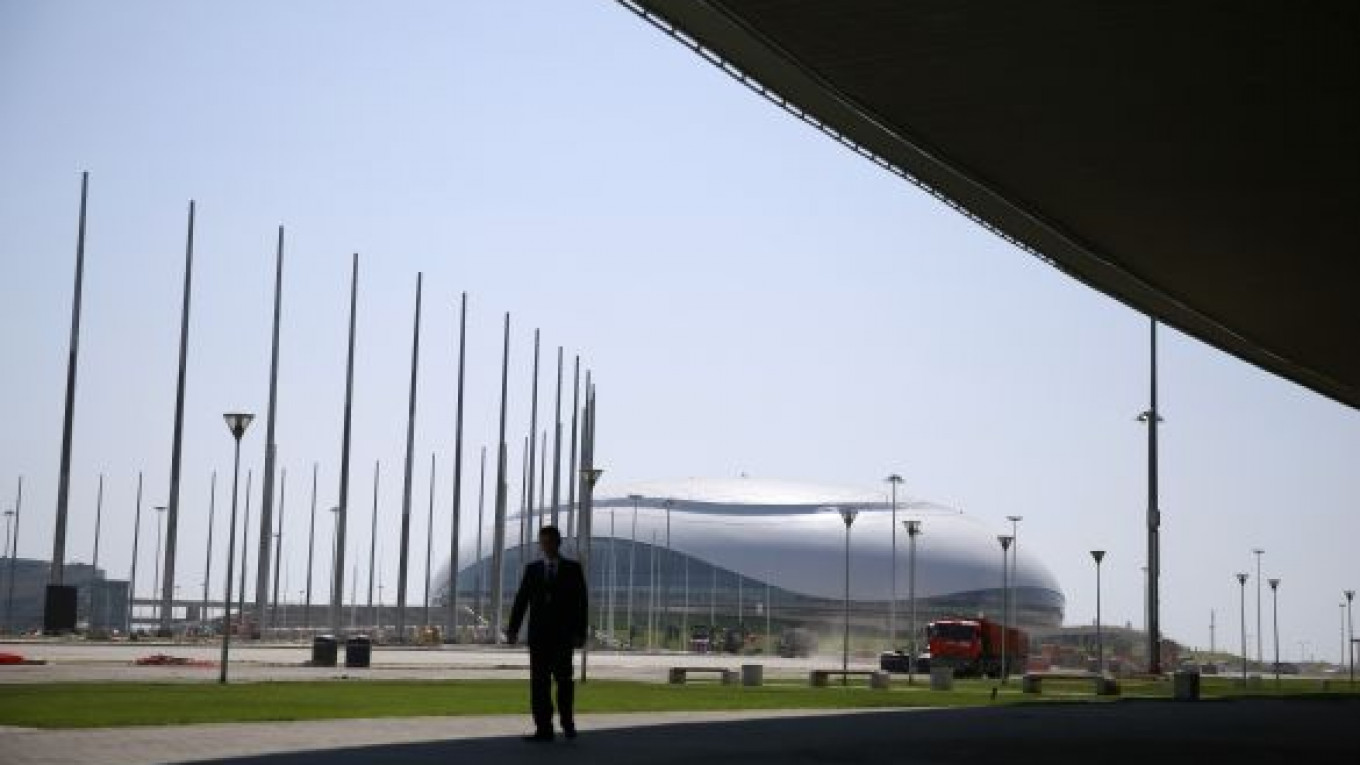Public protests in heightened security zones in Sochi will be prohibited during the Winter Olympic and Paralympic Games next year, according to a presidential order published Friday. Some activists have denounced the order as unconstitutional, though Human Rights Watch representatives said that protests might still be possible since the ban is not city-wide.
Heightened security zones include the perimeter of the Olympic Park, sports facilities, transport hubs and operational centers. Those wishing to access these areas will have to undergo security checks.
Demonstrations planned in these areas from Jan. 7 to March 21 will have to be rescheduled to a later date, according to the order.
LGBT activists who are currently fighting against the enforcement of the Russia's "gay propaganda" legislation, which punishes people for promoting homosexuality, in Sochi said that the new order puts more unconstitutional restrictions on personal freedoms.
"Measures like these could be used in wartime or during natural disasters. We are now showing the whole world that for us to host the Olympic games is a natural disaster," said gay rights activist Nikolai Alexeyev.
The order is specifically targeted at the gay community, Alexeyev said, in response to plans for a gay parade on Feb. 7, the opening day of the games. Gay activists are planning to appeal the order at the Supreme Court, though plans for holding the parade will go ahead regardless of the court's decision.
"Either way we'll organize something," Alexeyev said. "If we need to, we will get to Sochi."
There will also be restrictions on the movement of transport during the period of the games. Only trains, emergency vehicles and transport registered with the municipality or accredited by the Interior Ministry and Federal Security Service Transport will be allowed to enter Sochi. Transportation across the border between Adler and Abkhazia will be restricted.
But Tanya Lokshina from Human Rights Watch cautioned against exaggerating the severity of the order. The ban on meetings will be limited to a few very specific zones rather than the city as a whole, she said. The current text of the order appears to allow activists freedom to demonstrate in non-secure zones. It remains to be seen, however, how these rules will be implemented during the actual Olympics.
"We want to believe that Sochi won't be the most closed [Olympic] games in history," Lokshina said. "We hope that won't happen but will just have to wait and see."
She also dismissed comparisons with the level of control over the Sochi games to the 1980 Summer Olympics in Moscow, where so-called undesirable segments of society, such as alcoholics and dissidents, were moved out of the city territory for the duration of the sporting events.
But representatives of some non-governmental organizations said they had already been ejected from olympic sites. Greenpeace Russia led several campaigns against the environmental damage caused by Olympic construction projects, but redirected their efforts to other issues after meeting too many roadblocks.
The organization has focused its attention to the 2018 World Cup. Mikhail Kreindlin, who for a time spearheaded Greenpeace's Sochi campaigns, said that he is worried about the precedent that the new presidential order could set for future sporting events.
"If the [anti-protest] measures are successful, it is possible that they will be used during the World Cup as well," Kreindlin said. "Yes, we need more security, but here we could be seeing the restriction of basic rights."
Contact the author at e.smirnova@imedia.ru
A Message from The Moscow Times:
Dear readers,
We are facing unprecedented challenges. Russia's Prosecutor General's Office has designated The Moscow Times as an "undesirable" organization, criminalizing our work and putting our staff at risk of prosecution. This follows our earlier unjust labeling as a "foreign agent."
These actions are direct attempts to silence independent journalism in Russia. The authorities claim our work "discredits the decisions of the Russian leadership." We see things differently: we strive to provide accurate, unbiased reporting on Russia.
We, the journalists of The Moscow Times, refuse to be silenced. But to continue our work, we need your help.
Your support, no matter how small, makes a world of difference. If you can, please support us monthly starting from just $2. It's quick to set up, and every contribution makes a significant impact.
By supporting The Moscow Times, you're defending open, independent journalism in the face of repression. Thank you for standing with us.
Remind me later.


